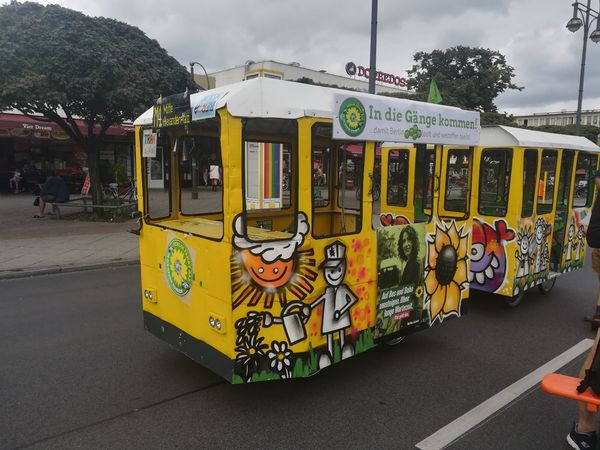The common as an imagination and practice
Practices of commoning infrastructure from a legal and gender perspective
This sub-project investigates current debates about the Berlin “mobility transition” (case study A) and about “birthing justice” (case study B) as political processes of general interest. The project is interested in how notions of the common are developed in these contestations over infrastructures: What does it mean to refer to “the common good”, and which imaginations of a more just future are developed and negotiated in this process? Who belongs to the “We” that is called upon, and how does this imagined community gain political traction and produce tangible effects? How do the actors on the ground answer the question of how we want to live together? How can we understand that fields as diverse as infrastructures of birthing and urban mobility both are being politically used for imagining a better future in a more just world?
In Case study A political mobilizations of the new Berlin mobility law (Berliner Mobilitätsgesetz) are under scrutiny. The law emanated from a referendum and is the supposed to be the foundation for a sustainable and just urban mobility for all citizens. It calls for political and administrative measures for the advancement of ecological mobilities (walking, biking, public transport, railways) and establishes various participatory mechanisms. How are conflicting modes of utilization of urban mobility infrastructure negotiated? How are the needs for mobility of different user groups brought in accordance with infrastructural preconditions? The case study investigates how processes of infrastructuration of urban mobility fosters imginations of a collectively used city and whether these processes activate political ideas of urban commons.

Case study B: “Birthing justice” describes a current moral guideline of the relationship to obstetric infrastructures. Supra-individual, collective (legal) claims, moralities and needs are addressed, which do not only focus on gestating or birthing individuals or families alone, but on society as a whole (“We are all born”, “Save our midwives”). Ideas and demands for change in obstetrics are linked to notions of the common good. In the German debate about obstetric institutions as part of the state’s obligation to provide for the public, the focus is not only on health (in a narrow medical understanding), but also on self-determination, workers’ rights and questions of anti-discrimination and diversity. Gestating and childbearing women and people, as well as midwives and the obstetric team, political actors and society as a whole are called upon for the success of just conditions. We are interested in the question of how to respond to the current challenges of midwifery within a legal framework: How do political actors work on birthing justice legislation such as the legal implementation of 1:1 care ratio. In particular: How do they use “the common good” as a political argument to advance their claims? Is there a just birthing and what does it look like? How can legal contradictions and paradoxes be navigated in everyday obstetric care?
